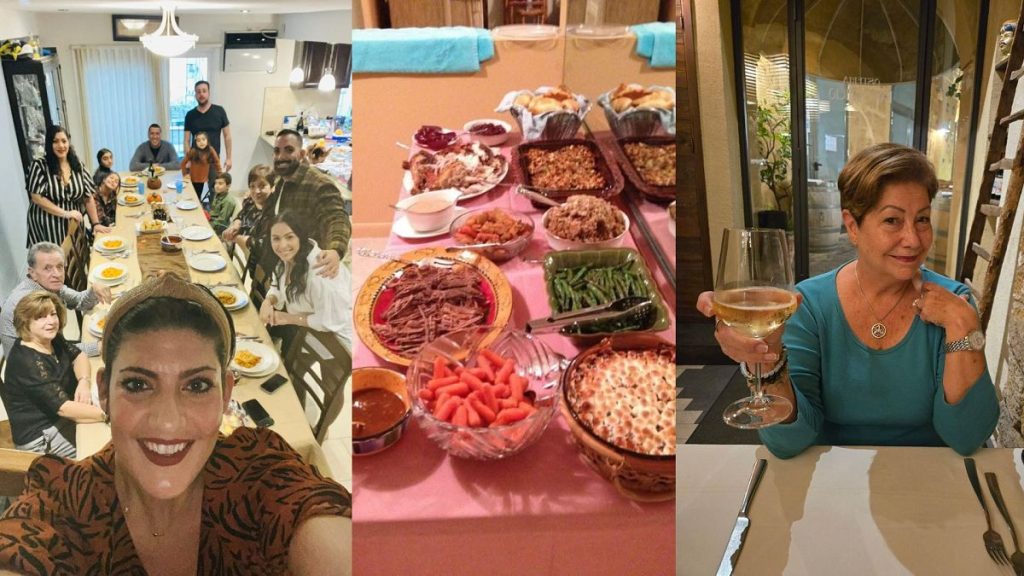As Thanksgiving approaches, American expats around the world grapple with how to celebrate this iconic holiday while living abroad. The origins of Thanksgiving date back to the 17th century, intertwined with American history and cultural values. Euronews Travel recently delved into the experiences of four Americans residing in Europe to explore how they adapt their Thanksgiving traditions in foreign lands. Ranging from maintaining cherished rituals to redefining the holiday’s meaning, their stories illuminate the diverse ways Thanksgiving is honored outside the United States.
Jodi, an expat living in Ispica, Sicily, holds Thanksgiving close to her heart, viewing it as the most important holiday in her life before moving abroad. She recalls extravagant celebrations where she gathered friends and family for long, gratitude-filled meals. However, her transition to Sicily has posed challenges in maintaining these traditions. Experiencing a cultural shock, Jodi has yet to replicate the all-encompassing Thanksgiving affair in her new home. Despite the struggle to recreate her cherished holiday, Jodi has found joy in local customs, particularly the captivating Holy Week celebrations in Sicily. By embracing new experiences while nurturing her fond memories of Thanksgiving, Jodi illustrates the complexity of celebrating a deeply American tradition in a foreign context.
Brought up in New York with Sicilian roots, Josephine has also sought to bridge her heritage with her American Thanksgiving experience. After moving to a Sicilian olive farm, Josephine aims to introduce traditional Thanksgiving customs to her new surroundings. Reflecting on her upbringing, she notes the blend of Italian and American traditions during her family’s Thanksgivings. With the desire to immerse herself in the holiday’s spirit, Josephine contemplates a menu featuring turkey and other traditional dishes, making it a family affair by involving children in the preparations. This desire to establish a Thanksgiving tradition in Sicily showcases Josephine’s aim to honor her American identity while adapting to her new cultural landscape.
Conversely, John and Katy, an American couple in Paris, are experiencing a shift in their relationship with Thanksgiving due to broader societal changes in the United States. After moving back to Paris, where they first met, they find themselves reevaluating what Thanksgiving signifies amidst their disillusionment with recent political developments. Katy’s sentiment captures a feeling of disconnect, as she questions the meaning of a holiday that traditionally symbolizes unity when it no longer seems to resonate with the current state of American society. For John, Thanksgiving once represented gratitude toward the country that welcomed his immigrant grandparents, but now he expresses concern over the declining values in the U.S. Together, they plan to celebrate Thanksgiving by focusing on personal gratitude rather than communal national identity.
The experiences of these four Americans in Europe reflect a broader narrative about the evolving meaning of Thanksgiving abroad. While some expats continue to cherish and uphold traditional customs, others find themselves recontextualizing the holiday amidst cultural and emotional changes. The stories reveal a common thread of gratitude, whether expressed through traditional meals or personal reflections on community and heritage. As Thanksgiving evolves beyond the purely cultural celebration, it invites expats to honor their roots while embracing the complexities of their international lives.
The juxtaposition of celebration and introspection among these expats highlights a significant theme: how familiar traditions can take on new meanings in unfamiliar settings. The struggles and triumphs of Jodi, Josephine, John, and Katy reinforce the notion that Thanksgiving transcends geographical boundaries, inviting individuals to consider what it means to give thanks as they navigate diverse cultural landscapes. Whether through maintaining time-honored practices or reinventing the holiday in a new light, these expats embody the spirit of adaptation, allowing their Thanksgiving celebrations to reflect their unique journeys.
In conclusion, the stories of American expats celebrating Thanksgiving abroad present a multifaceted view of how traditions morph and adapt in response to cultural shifts and personal experiences. From Jodi’s integration of local customs to Josephine’s commitment to fostering her American heritage, and from John and Katy’s reflective gratitude to the evolution of the holiday’s significance, these narratives illustrate the ongoing relevance of Thanksgiving. As expats embrace the holiday in new contexts, they continue to seek connection, identity, and gratitude, reaffirming that the spirit of Thanksgiving remains alive, regardless of where one resides.














